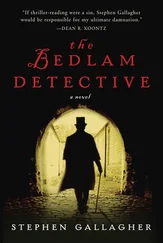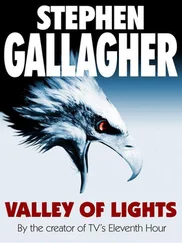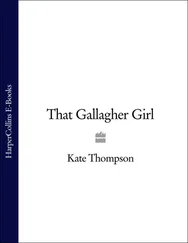“You know,” she said. “Do my part.”
I nodded solemnly.
Once we got to the park, we crunched together like tinfoil to fit everyone. A state senator gave a speech, followed by the star of a mildly popular 1990s sitcom. They weren’t the A-list protestors that San Francisco got, but they were both good. It was hard to hear them over a man in a Guy Fawkes mask who kept shouting “Liar!” anytime a politician’s name was mentioned, regardless of their stance on Iraq. He even called Desmond Tutu a liar. To tune him out, I watched a demonstration in the far distance, near the fountain, a group of men lifting a coffin draped with flags: they’d carry it a few feet, set it down, and do it again.
Those are vets, I realized, tipped off by their olive jackets and navy mesh caps. Some were even pasty and overweight, though most were angular and ragged. They weren’t yelling about liars. They didn’t seem to be saying anything at all.
I watched the vets and their coffins for the rest of the rally. They slowed over the ensuing two hours but never stopped, cutting through the crowd like a piece of large driftwood. I was transfixed by the ceremony of their movements, by their commitment to one purpose. I romanticized each man’s life story as I found his face: the ne’er-do-well from Oakland who was a medic in the Delta, the country kid from Auburn who learned to fly helicopters in the army, the rich boy from Napa who moved like a fucking jungle cat.
They’re not here because things are simple, I thought, like everyone else is. They’re here because things are complex.
Then the speeches ended, and the vets went one way and we went the other.
Back in the Yukon, people were excited, raw energy passing from person to person in a current. Sitting a row ahead of me, the student government rep asked what I thought. I said the Vietnam vets had impressed me greatly.
“Baby killers,” her friend said, the filibustering one. “Guilt is why they do that. Guilt for the war crimes they were never punished for.”
I waited for her to smile, to show she was joking. It never came. That bothered me. My uncle had served in Vietnam. So had a middle school history teacher. They were kind men. They hadn’t been at My Lai. They weren’t baby killers, and neither had my grandfathers been, in their war.
“Urban legends are funny things,” I said. “You hear about the crazy girl who hijacked a pep rally? To rant about a country she’s never been to?”
That earned some snickers from the group, but it also ended any hope for peace in the Yukon.
“At least they have an excuse,” my adversary said, shifting in her seat to look at me properly. “They were drafted. They didn’t volunteer to murder innocents.”
Distantly, beyond the loud anger, I heard someone say that most Vietnam vets had volunteered, but the time for thoughtful discussion had passed. What mattered now weren’t good points, or accurate points. What mattered now was victory.
We turned onto the highway, heading northeast. Back to suburbia, back to Granite Bay, back to lakeside summers and fireplace winters. I took a deep breath and rested my chin on a fist. Then I asked if she liked the song “Imagine.”
“Of course,” she said. “It’s so powerful.”
“Imagine no countries,” I said.
“Yes,” she said.
“Nothing to kill or die for,” I said.
“Yes,” she said.
“All the people living life in peace.”
“Yes.”
“Now,” I said. “Imagine a worldview more nuanced than a three-minute pop song written by a stoned degenerate.”
I knew next to nothing of Lennon’s personal life, but damn if it didn’t sound good coming off the tongue.
Things escalated from there. She called me glib. I called her shrill. She called me a warmonger. I called her a poser. She called me an asshole. I called her a bitch. She said that my brother had volunteered to kill babies, which made him a baby killer, which made me a baby-killer apologist.
In later years, I’d imagine myself responding with something smart, like “In a representative democracy, we’re all complicit.” Or “Your parents pay their taxes? They’re as guilty as anyone.” Or “Soldiers volunteer to serve their country. It’s their country that decides where to send them.” Instead I just said I wasn’t going to listen to a goddamn moron who couldn’t get into Chico State. Which was a silly thing to say, and not just because she’d matriculate at Reed in a few months.
We were both yelling, and the driver pulled over and said we needed to stop or get out. I did so without a word, though it was still surprising when the Yukon pulled away, leaving me with a mouthful of highway dust. I walked to the nearest exit and into a McDonald’s for a milk shake. I was trying not to cry but couldn’t help it, and the Hispanic kid behind the register gave me a large shake for free. I sat alone at a corner table until I calmed down, then I called my dad. He always made jokes about his protesting days, so it seemed better to call him.
When he arrived, we sat in quiet for a few minutes. The tears were gone, but I knew my eyes were still red.
“Tough day?” he eventually asked.
“Just dumb,” I said. “All of it.”
“Yeah,” he said. “That can happen.” Then he took me home and made his specialty, toasted peanut butter and banana sandwiches soaked in honey, and we watched an Eastwood movie.
The afternoon bloomed desert reds and desert golds. We waited at the front gate of the outpost for the two brothers to collect their blood money. They were late.
“Arabs,” Snoop said, spitting out sunflower seed shells onto the dirt path, his voice filling the sticky May air. “Not like the Sudanese, Lieutenant Jack. We are a timely people. And consider-ate. Arabs make jokes about clocks not following time. Not even funny jokes.”
The soldiers tasked to wait with us agreed with our young terp; it was my crew, two on the ground, one in the Humvee’s turret behind a limp machine gun. They all looked as hot and bored as I felt, our body armor and helmets like shackles fixing us to the ground. We need to build that sentry shack, I thought, if not for safety, then for some goddamn shade. Without it, we had no choice but to wait in the open, blast walls behind us, fat sun above, the little town of Ashuriyah to our front.
“Chill, guys,” I said, beads of dirty sweat running under my helmet and down my face. “Their cousin got shot for driving down the road. Funeral probably ran long, that’s all.”
“We didn’t kill him,” Alphabet said from the turret. He took a swig of bottled water before continuing. “First platoon did, trigger-happy cowboys. Who do they think they are, the SEALs?” Then he burped, loud and proud, wronged as only a young soldier pulling someone else’s duty can be.
I agreed with him, but couldn’t let him know that. So I told him to make himself useful and scan the two-story apartment buildings across the dirt road to our south. He grabbed the binos and stood on his tiptoes, his wide, blocky frame limiting his mobility.
“Empty and abandoned, sir,” he said. “Like always. Staff Sergeant Chambers says the guards on the roof should scan those buildings, not us. He says we couldn’t do anything from here even if we needed to.”
I seethed. Escaping Chambers was impossible, like his shadow had been stapled to my heels. “I don’t care what Sergeant Chambers told you,” I eventually said. “I’m the platoon leader. Not him.”
Another forty minutes passed in slow drips of sun. We killed time with great precision, skipping rocks and telling stories of home. Stories of girls, stories of late nights and foggy mornings, stories exaggerated and stories seared into outright lies. The desert heat bleached everything, including the minds and memories of its occupiers. Alphabet once drank a fifth of whiskey in an hour. Dominguez lost his virginity to a friend’s aunt. Hog had cliff-dived into the Arkansas River from fifty feet up. Snoop knew a girl in Baghdad’s Little Sudan neighborhood who said he had the biggest dick in all of Mesopotamia, and who was he to question her?
Читать дальше




![Ally Carter - [Gallagher Girls 02 ] - Cross My Heart & Hope To Spy](/books/262178/ally-carter-gallagher-girls-02-thumb.webp)
![Ally Carter - [Gallagher Girls 01] I'd Tell You I Love You But Then I'd Have to Kill You](/books/262179/ally-carter-gallagher-girls-01-i-d-tell-you-i-lo-thumb.webp)






